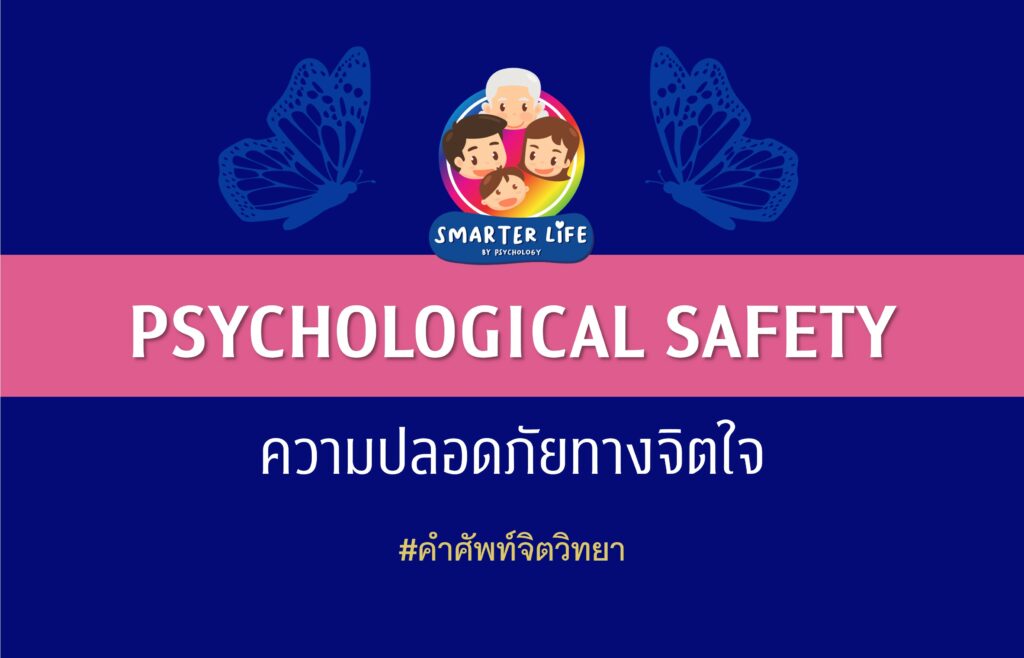Cognition is our ability to processes information. It includes how we perceive the world, how we remember facts and events, how we solve problems, and how we think. It has a profound influence on our consciousness and how we interact with the world. People vary in their cognitive abilities substantially, and this is important because it hugely influences our lives. People with relatively better cognitive ability have many positive outcomes in life, compared to people with lower cognitive ability (Brown et al., 2021). Higher general cognitive ability also protects us against brain-related decline and illness as we age (Stern, 2009) and even against development of post-traumatic stress disorder if we experience something nasty (DiGangi et al., 2013).
So, what determines a person’s cognitive ability? It is true that our cognitive functions are somewhat determined by our genes. But the environment that we live in, and particularly that we grew up in, has a huge impact too. Deprivation and privilege are consequently the most important factors that determine our cognitive ability.
If we examine cognitive test scores from groups of people of high socioeconomic privilege (i.e. rich people), we will usually find that they are much higher than scores from groups of people of low socioeconomic privilege (i.e., poor people). It is tempting to think that this indicates people fitting into their appropriate station in life, the less cognitively-able take on low-paid manual jobs, and the more cognitively-able become higher-paid managers and leaders. That would neatly explain why richer people have better cognitive ability than poorer people.
However, such a cross-sectional snapshot is just the wrong way to look at the relationship between cognition and society. The reality is that people within societies develop, day by day, across their entire lives, with every event influencing their neurocognitive systems. This is because the brain is a living, learning tissue. Influences on how it will develop began right at the beginning of life and continue until the end of life.
A baby raised in poverty will have innumerable setbacks, compared to a baby raised in wealth, which just continue to accumulate through infancy into childhood, and into adulthood, and old age. These include things such as limited access to healthcare and education, exposure to pollution, availability of nutritious food etc. Of course, this won’t guarantee that a baby born and raised in deprivation cannot achieve many things. One fine example is Mario Capecchi, who at age four was a homeless street child, but later became a scientist, and by age 70 had been awarded a Nobel Prize for Physiology or Medicine (Capecchi, 2008).But nevertheless, for many children, the life opportunities dwindle as the setbacks to their cognitive development mount up. The reality is that virtually all Nobel Prize winners come from privileged economic backgrounds (Novosad et al., 2024), and being a homeless street child is usually associated with development of below-average cognitive ability (Pluck et al., 2018). So, Mario Capecchi is very much an outlier.
It is notable that education was a core feature of his post-homeless life. Indeed, an extremely important factor in cognitive development is education. This has a very strong impact on cognition, as each year spent in formal education improves one’s cognitive ability (Ritchie & Tucker-Drob, 2018). On the one hand, education has a very potent role in enhancing cognitive ability for all, rich or poor. On the other hand, it also magnifies the difference between rich and poor.

It is a well-replicated observation that children from richer homes, compared to children in poorer homes, will be more exposed to written materials, such as books (Park, 2008). This gives children in richer homes an advantage in their first days in school. These little advantages continue as they are able to read more advanced texts, get selected for higher educational streams, accepted into better schools, colleges etc. The underprivileged child, on the other hand, is caught in a ‘negative causal spiral’ (Mol & Bus, 2011), as the older they become, the further and further they fall behind their richer peers in terms of literacy and general learning. And book availability is just one piece of this. Of course, a myriad of other factors is adding to the accumulating setbacks that the poorer child faces, compared to the richer child.
If we take another example of disadvantage, children raised in foster care homes will generally experience both socioeconomic and psychosocial deprivation. This necessarily leaves them with lower social support available, and tends to prevent the development of positive emotion regulation skills (Trueba & Pluck, 2021). Without those psychological safety-nets they are at greater risk of psychopathology and maladaptive behavior, such as repeated suicide and self-harm attempts (Pluck et al., 2013). As adolescents leave foster care they are at risk of instability in many areas of their lives, including access to continuing education, housing and employment (Rome & Raskin, 2019). As with other groups who experience disadvantage, such as youths experiencing homelessness, and people who grew up in poverty, their cognitive ability is lower than their more privileged peers (Fry et al., 2017).

Foster care is not a specific risk for homelessness, other youths who experience deprivation are also more likely to experience homelessness as adults (Koegal, et al, 1995). Again, educational access is important. In both developed and developing countries, studies have shown that education level is substantially lower in adults experiencing homelessness than in the general population, with frequent drop outs from the education system (Pluck et al., 2020). This impacts most strongly on the development of crystalized cognitive ability, that is, things like general knowledge and language skill. Consequently, homeless adolescents, such as street-connected youths, tend to have poor literacy and language ability (Pluck, 2021), as do adults experiencing homelessness (Pluck et al., 2020).
Thus, language skill development is the cognitive factor most negatively impacted by deprivation (Pluck et al., 2021), or perhaps if we look at it the other way around, enhanced by privilege. We know that this is a quite specific effect of deprivation. One reason is that psychopathology, also linked to deprivation, tends to have the opposite effect, in that fluid, top-down cognitive control is impaired (McTeague et al., 2016). However, crystalized language skill is preserved in psychopathology, even in the presence of dementia (Pluck & Ruales-Chieruzzi, 2021). So, the lower language skill linked to deprivation is not caused by psychiatric or neurological illness.
For this reason, adolescents and adults with difficult life trajectories, involving school failure, delinquency etc., tend to have normal fluid cognitive abilities, but substantially lower than normal ability in crystalized and verbal cognitive skills (Isen, 2010).
Clearly, education has a potent role in accumulating cognitive disadvantage and advantage in different people. At the extreme end, children who fail at school are likely to be from poorer backgrounds, and that risk of drop out accumulates because of reoccurring setbacks within the education system (Tieben & Wolbers, 2010). School failure puts adolescents at risk of economic hardship as they move into adulthood.
But this also, holds out opportunity. Crystalized cognitive ability, the type mainly impacted by disadvantage, is inherently improvable and educable. At any stage in life, learning new things, whether through hobbies, self-study, or formal education, will improve one’s cognitive skill. This can negate past delays in cognitive development brought on by the slings and arrows of socioeconomic and psychosocial disadvantage.
References
Brown, M. I., Wai, J., & Chabris, C. F. (2021). Can you ever be too smart for your own good? Comparing linear and nonlinear effects of cognitive ability on life outcomes. Perspectives on Psychological Science, 16(6), 1337-1359. https://doi.org/10.1177/1745691620964122
Capecchi, M. R. (2008). The making of a scientist II (Nobel Lecture). Chembiochem, 9(10), 1530-1543. https://doi.org/10.1002/cbic.200800239
DiGangi, J. A., Gomez, D., Mendoza, L., Jason, L. A., Keys, C. B., & Koenen, K. C. (2013). Pretrauma risk factors for posttraumatic stress disorder: A systematic review of the literature. Clinical psychology Review, 33(6), 728-744. https://doi.org/10.1016/j.cpr.2013.05.002
Fry, C. E., Langley, K., & Shelton, K. H. (2017). A systematic review of cognitive functioning among young people who have experienced homelessness, foster care, or poverty. Child Neuropsychology, 23(8), 907-934. https://doi.org/10.1080/09297049.2016.1207758
Isen, J. (2010). A meta-analytic assessment of Wechsler’s P> V sign in antisocial populations. Clinical Psychology Review, 30(4), 423-435. https://doi.org/10.1016/j.cpr.2010.02.003
Koegel, P., Melamid, E., & Burnam, M. A. (1995). Childhood risk factors for homelessness among homeless adults. American Journal of Public Health, 85(12), 1642-1649. https://doi.org/10.2105/AJPH.85.12.1642
McTeague, L. M., Goodkind, M. S., & Etkin, A. (2016). Transdiagnostic impairment of cognitive control in mental illness. Journal of Psychiatric Research, 83, 37-46. https://doi.org/10.1016/j.jpsychires.2016.08.001
Mol, S. E., & Bus, A. G. (2011). To read or not to read: a meta-analysis of print exposure from infancy to early adulthood. Psychological Bulletin, 137(2), 267-296. https://doi.org/10.1037/a0021890
Novosad, P., Asher, S., Farquharson, C., & Iljazi, E. (2024). Access to opportunity in the sciences: Evidence from the Nobel Laureates. Unpublished working paper. https://paulnovosad.com/pdf/nobel-prizes.pdf
Park, H. (2008). Home literacy environments and children’s reading performance: A comparative study of 25 countries. Educational Research and Evaluation, 14(6), 489-505. https://doi.org/10.1080/13803610802576734
Pluck, G. (2021). Theory of mind ability and socioeconomic status, a study of street-connected children and adolescents in Ecuador. Psych, 3(2), 72-84. https://doi.org/10.3390/psych3020008
Pluck, G., Córdova, M. A., Bock, C., Chalen, I. & Trueba, A. F. (2021). Socioeconomic status, executive functions, and theory of mind ability in adolescents: Relationships with language ability and cortisol. British Journal of Developmental Psychology, 39(1), 19-38. https://doi.org/10.1111/bjdp.12354
Pluck, G. (2024). Executive function and adult homelessness, true impairment or frontal lobology? Frontiers in Human Neuroscience,18, 1359027. https://doi.org/10.3389/fnhum.2024.1359027
Pluck, G., Anderson, M., Armstrong, S., Armstrong, M., & Nadkarni, A. (2013). Repeat self-harm among children and adolescents referred to a specialist service. Journal of Child & Adolescent Trauma, 6(1), 57-73. https://doi.org/10.1080/19361521.2013.743949
Pluck, G., Banda-Cruz, D. R., Andrade-Guimaraes, M. V., & Trueba, A. F. (2018). Socioeconomic deprivation and the development of neuropsychological functions: A study with “street children” in Ecuador. Child Neuropsychology, 24(4), 510-523. https://doi.org/10.1080/09297049.2017.1294150
Pluck, G., Barajas, B. M., Hernandez-Rodriguez, J. L., & Martínez, M. A. (2020). Language ability and adult homelessness. International Journal of Language & Communication Disorders, 55(3), 332-344. https://doi.org/10.1111/1460-6984.12521
Pluck, G. & Ruales-Chieruzzi, C. B. (2021). Estimation of premorbid intelligence and executive cognitive functions with lexical reading tasks. Psychology & Neuroscience, 14(3), 358–377. https://doi.org/10.1037/pne0000264
Ritchie, S. J., & Tucker-Drob, E. M. (2018). How much does education improve intelligence? A meta-analysis. Psychological Science, 29(8), 1358-1369. https://doi.org/10.1177/0956797618774253
Rome, S. H., & Raskin, M. (2019). Transitioning out of foster care: The first 12 months. Youth & Society, 51(4), 529-547. https://doi.org/10.1177/0044118X17694968
Stern, Y. (2009). Cognitive reserve. Neuropsychologia, 47, 2015-2028. https://doi.org/10.1016/j.neuropsychologia.2009.03.004
Tieben, N., & Wolbers, M. (2010). Success and failure in secondary education: socio‐economic background effects on secondary school outcome in the Netherlands, 1927–1998. British Journal of Sociology of Education, 31(3), 277-290. https://doi.org/10.1080/01425691003700516
Trueba, A. F. & Pluck, G. (2021). Social support is related to the use of adaptive emotional regulation strategies in Ecuadorian adolescents in foster care. Psych, 3(2), 39-47. https://doi.org/10.3390/psych3020005
Author
Graham Pluck
Lecturer in Cognitive Psychology and JIPP Program




